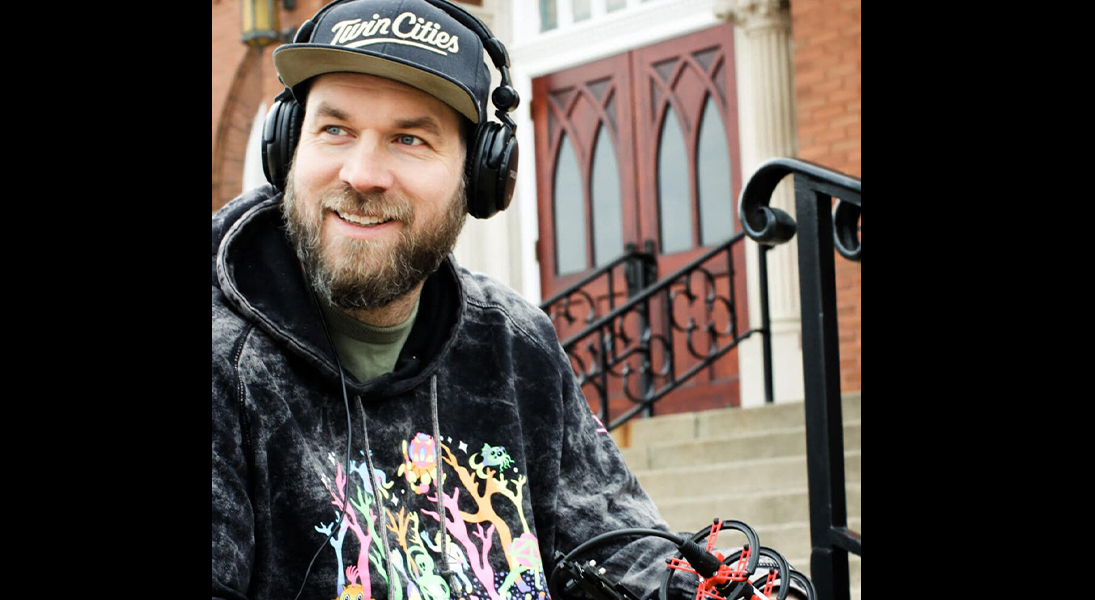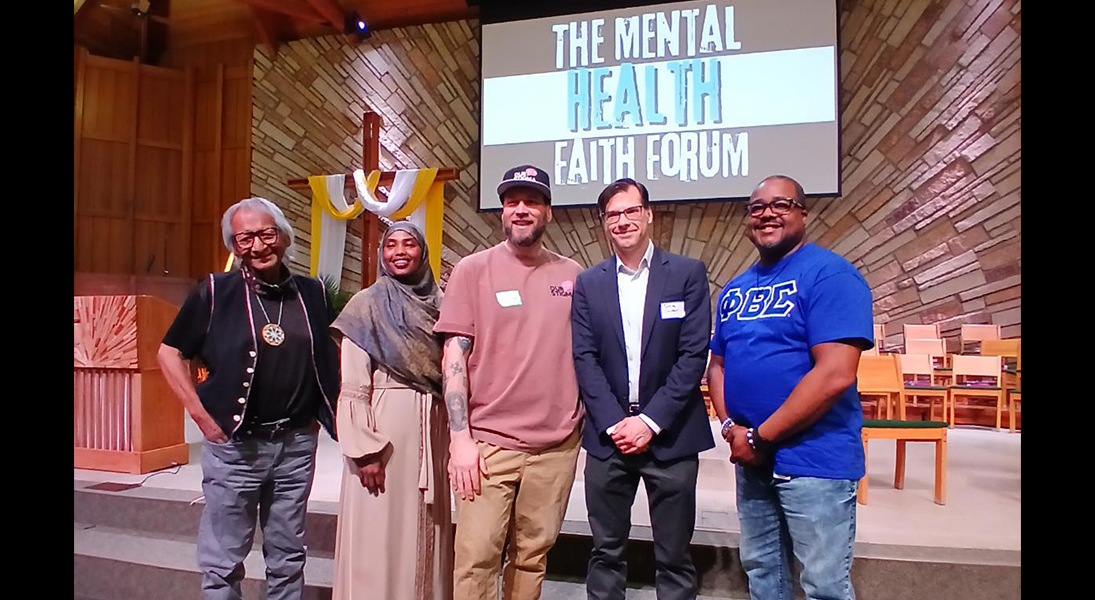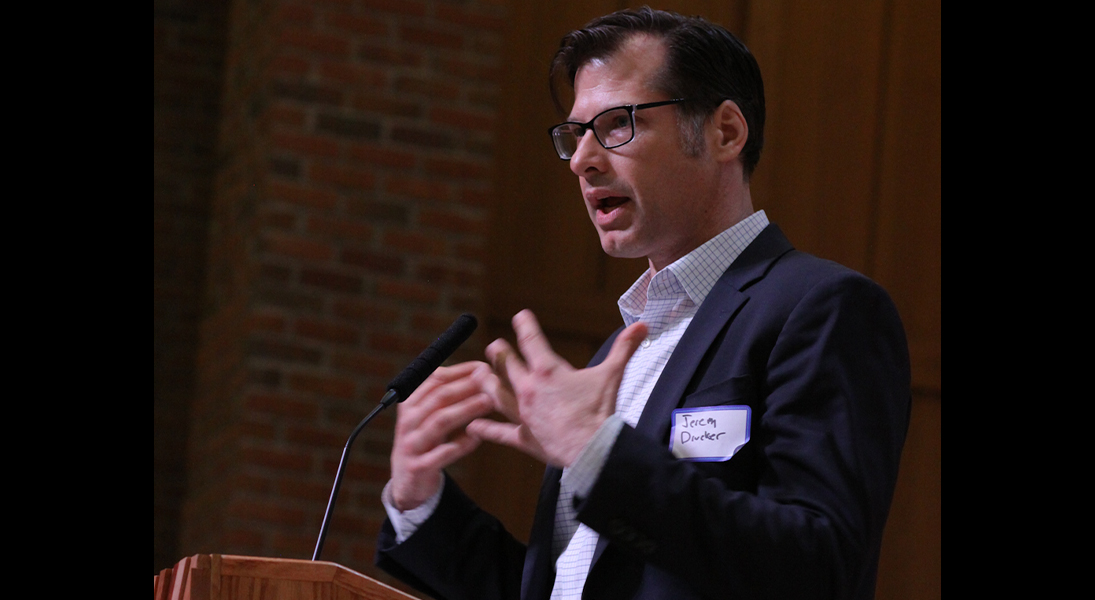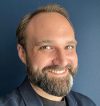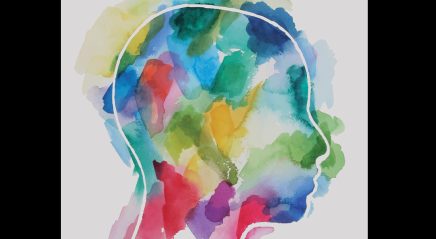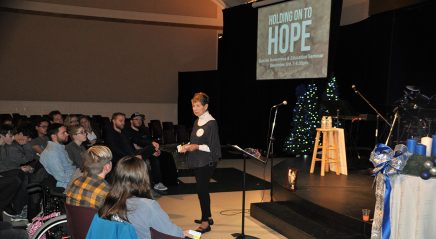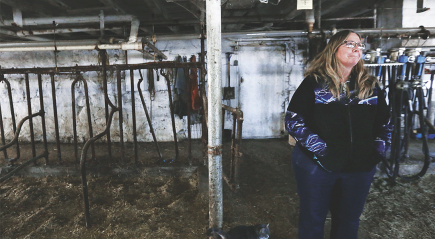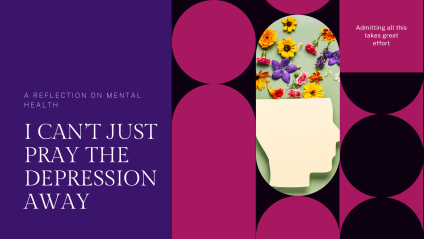When Seth Perry was growing up, tragedy struck his Lutheran congregation—a member of his youth group died by suicide. “But [the congregation] didn’t feel like they could talk about it afterward, and the mental health of our youth really suffered at that time,” he said.
As he got older, Perry experienced his own mental health challenges. But he only learned well into adulthood that some family members had also experienced issues with mental health and addiction, going back several generations. “We didn’t talk about it,” he said. “So, I suffered longer with my mental health and addictions because, I think, my family and my church community didn’t talk about it.”
Perry, who today serves as pastor of Elim Lutheran Church in Scandia, Minn., found that when he attended seminary, “they didn’t talk about it there either.”
Now living well with bipolar I disorder and long-term addiction recovery, Perry is committed to reducing mental health stigma within faith communities.
“The way I saw the Lutheran church was, we had a major issue in our congregations and in our seminaries, and that’s huge because that’s training our leaders for the future,” Perry said. “I saw that we needed to have a deeper dialogue about this.” He began to think seriously about how to equip congregations to address mental health and addiction issues.
“The way I saw the Lutheran church was, we had a major issue in our congregations and in our seminaries. We needed to have a deeper dialogue about this.”
On Ash Wednesday in 2023, he went public with his diagnosis, receiving a “tremendously positive response. My initial vision was, I’ll go public about it, and we’ll have an opportunity for some education,” said Perry, who has been sober for 15 years.
Perry then received a grant from the Saint Paul Area Synod for an initial mental health education campaign, which he began in 2023. In the first stage of the process, he discovered a history of suicide in Elim’s local context. “We’re in a rural area, and I kept hearing that same thing” from people in the community about experiences with suicide, he said. “It became clear to me that the next stage would be to educate people on suicide prevention and suicide response.” Perry did so through workshops presented in partnership with the National Alliance on Mental Illness.
Simultaneously, Perry got involved locally in advocacy as part of his campaign. He became a member of Minnesota’s Washington County Opioid Settlement Council and has built connections between local mental health providers and congregations through that work.
The groundwork of advocacy and education workshops eventually led Perry to his ministry’s biggest undertaking yet.
“About a year into the campaign, I saw that a big component of this would be education through online media,” he said. “So, I received funding for our new podcast and then spent the last year working on that.”
A new platform
Perry’s podcast, “Our Stigma,” debuted this month in conjunction with Mental Health Awareness Month. The six-part docuseries is dedicated to breaking the silence around mental health and addiction in spiritual communities. Weekly episodes began releasing on May 1, accompanied by a free study resource for small groups focused on developing grassroots mental health outreach.
A grant from the Washington County Opioid Settlement Council provided funding for the podcast, as did M Health Fairview’s community health and faith partners network. Production began on “Our Stigma” last May, in partnership with Good Faith Media.
Each episode features interviews with a mental health professional and a policymaker. “I interviewed [Minn.] State Rep. Dave Baker, a Republican, and I interviewed Jeremy Drucker, the director of the Office of Addiction and Recovery under Gov. Tim Walz [D-Minn.],” Perry said. “So, [we have] Democrats and Republicans talking about bipartisan partnership for this kind of work, which is important.”
“Our Stigma” and its accompanying resources guide congregations through three actionable steps they can take for their mental health ministry. “If you’re going to start a sustainable mental health ministry, education and discernment should be first,” he said. Congregations should consider their neighborhood, their members’ needs, financial resources and how to avoid burnout, he said.
Second is “encouraging congregations to bring someone in with lived experience of mental health and addiction to speak,” he said. “And third is encouraging people to take the important steps of local research as to who your care providers are for mental health and addiction and crisis management.”
“Our Stigma” formally launched at the Mental Health Faith Forum held May 3 at Trinity Lutheran Church in Stillwater, Minn. The event, co-sponsored by the Saint Paul Area Synod, was attended by 130 guests and featured speakers, including community leaders of different faiths and ethnicities, policymakers, and mental health and addiction experts, as well as 30 exhibitors.
“If you’re going to start a sustainable mental health ministry, education and discernment should be first.”
Drucker spoke at the event, as did U.S. Sen. Amy Klobuchar, D-Minn., who sent a video message for the forum. “Interfaith partnerships do so much to break down the stigma around these challenges,” Klobuchar said. She highlighted relevant policies she has worked on and touched on the critical role that faith played for her father, journalist Jim Klobuchar, in his recovery.
Farhia Budul, the first female Somali licensed addiction counselor in Minnesota, was opening speaker at the forum. “It means a lot to be welcomed into this space, especially to speak on something that is so personal to me—my story, and my struggles and my dedication to my life and others today,” she said. “The stigma in my community is a real thing.”
The forum’s keynote speaker, Kody Green, uses his social media platforms (he has over 2 million followers) to discuss mental health and recovery. He spoke about the power of being in a welcoming church setting for the event after having experienced religious trauma. “Every person, no matter who they are, where they are, who they align with, what faith they believe in, needs a community. And I’ve seen so many people not welcomed back to their faith communities because of the things they struggle with,” he said.
Perry hopes congregations and small groups interested in serving as welcoming faith communities to those in recovery can join Our Stigma’s online discussion series this July. Over four weekly sessions, participants will go into breakout rooms for training on using the “Our Stigma“ curriculum in their contexts.
“It’s going to be a mixture of pastors, laypeople and people from recovery community organizations with lived experience of addiction and recovery,” he said. Just the group of people he believes it will take to effectively break the silence.
Sign up to join the July discussion series by emailing info@ourstigma.com. Listen to the podcast here.



